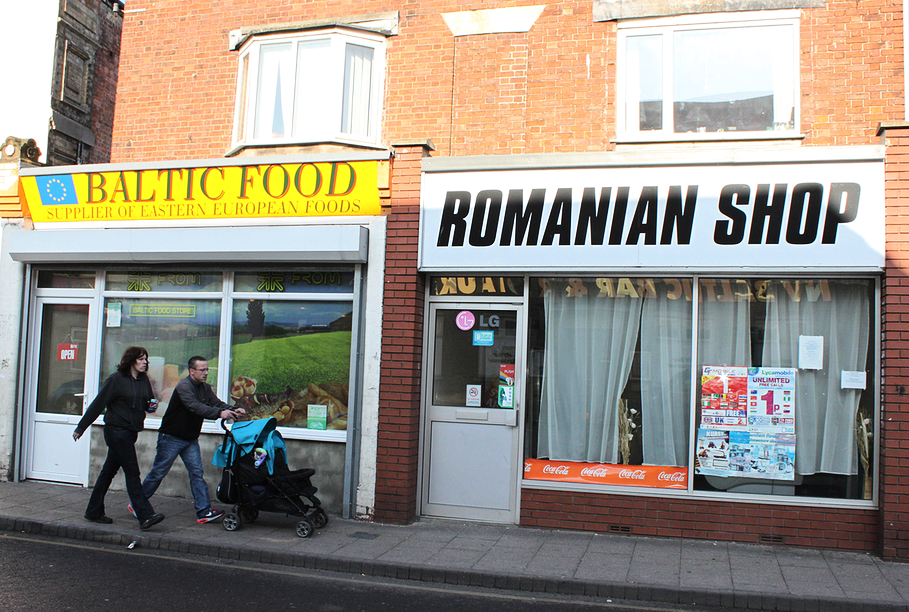Boston’s population has been transformed in the past ten years, with one in eight residents now hailing from eastern Europe and local foreign-born resident numbers continuing to swell at twice the national rate, wrote AP reporter Jill Lawless at the end of March.
Resident butcher Nigel Lote, remarking upon the unhappiness of the English locals with “a few too many of the foreign brigade here at the moment”, said “it’s getting to the stage where there’s them and us. We don’t mingle,” he added.
Indeed, the arrival of the tens of thousands of economic migrants from the states that joined the EU in 2004 has turned the local host community toward the right-wing anti-EU UKIP party, which has surged to popularity from the political fringe among angry voters in the past year. Many believe the Boston area’s constituency in Parliament will switch from Prime Minister David Cameron’s Conservative Party to UKIP, in light of the latter’s anti-immigration stance.
AFP reported Friday also from Boston that job-boards are now posting notices almost entirely in Latvian or Polish, sharply underlining the statistics showing how the town’s population grew by 467% - the largest increase anywhere in Britain, reaching 15% of the total between the censuses of 2001 and 2011.
John Gardner, 59, is among those torn between the two parties, saying that immigration has put a “strain on our resources”.
“My daughter works in a hospital, my son is a teacher and they tell me about the amount of foreign students, foreign patients and it’s just making life harder for them,” he said.
In some local schools, it is hard to find more than one child who speaks English as their mother tongue, presenting a real challenge for teachers, a school inspector Lailey de Ville told AFP.
Conservative local councillor Mike Gilbert said the area has taken in more immigrants than it can cope with.
He argues the influx is driven in part by Britain’s relatively generous welfare state, and notes his party has promised to clamp down on benefits for EU migrants.
“They are just making a rational choice by coming to Boston,” he said, citing perks such as housing assistance, individual child payments, and access to free health care and education.
“When you put that package together, why wouldn’t somebody come?”
But he admits the workers also come because of a demand for flexible labour in Lincolnshire, a farming heartland in eastern England.
Many immigrants work as field hands and food processing workers; low-paid, low-skilled jobs that keep the local economy going.
There are complaints that the workers cram into accommodations and have helped drive up rents.
One strident anti-immigration activist Dean Everitt complained about being a “foreigner in my own country”:
“I live in England, I am an English person, I expect to be able to speak English in my own country, not have to learn Polish or Latvian to work in the local factory,” he said.
He complained that the new arrivals were not even contributing to the economy, shopping at eastern European grocery shops which imported their products and then sent the profits to relatives back home.
Most of the immigrants out on West Street, one of Boston’s main shopping streets, declined to discuss such criticisms with the AFP reporter, often citing their poor English.
But Anna, a 30-year-old Polish woman who works as a translator, said more and more of her compatriots were making an effort to integrate, notably by taking English language courses.
EU migrants are net contributors to the economy, according to several studies, including one by University College London that said they have brought £20 billion (Dh108.8 billion) to British coffers over the past decade.
And not everyone is unhappy with the new arrivals in Boston.
“Every shop around the corner has a different nationality — brilliant. Let’s eat the different food, meet the different people,” said pensioner Graham Scarborough.
“If it wasn’t for them, more than half of the shops in West Street would be empty,” added Richard Goodwin, 64. “From that point of view, they are doing us a favor.”




























